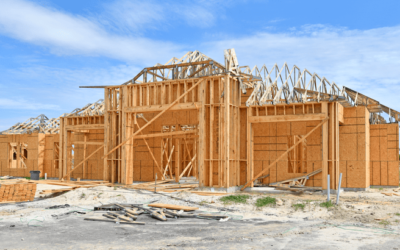
” The job of the inspector is to protect your investment and find any issues with the home.”
So you made an offer and it was accepted. Now, your next task is to have the home inspected prior to closing. Agents oftentimes make your offer contingent on a clean home inspection.
This contingency allows you to renegotiate the price you paid for the home, ask the sellers to cover repairs, or in some cases, to walk away. Your agent can advise you on the best course of action once the report is filed.
How to Choose an Inspector
Your agent will most likely have a short list of inspectors that they have worked with in the past that they can recommend to you. HGTV recommends that you consider the following five areas when choosing the right home inspector for you:
1. Qualifications – find out what’s included in your inspection and if the age or location of your home may warrant specific certifications or specialties.
2. Sample Reports – ask for a sample inspection report so you can review how thoroughly they will be inspecting your dream home. In most cases, the more detailed the report, the better.
3. References – do your homework – ask for phone numbers and names of past clients who you can call to ask about their experiences.
4. Memberships – Not all inspectors belong to a national or state association of home inspectors, and membership in one of these groups should not be the only way to evaluate your choice. Membership in one of these organizations often means that continued training and education are provided.
5. Errors & Omission Insurance – Find out what the liability of the inspector or inspection company is once the inspection is over. The inspector is only human, after all, and it is possible that they might have missed something they should have seen.
Ask your inspector if it’s okay for you to tag along during the inspection. That way they can point out anything that should be addressed or fixed.
Don’t be surprised to see your inspector climbing on the roof or crawling around in the attic and on the floors. The job of the inspector is to protect your investment and find any issues with the home, including but not limited to: the roof, plumbing, electrical components, appliances, heating & air conditioning systems, ventilation, windows, the fireplace and chimney, the foundation, and so much more!
Bottom Line
They say, ‘ignorance is bliss,’ but not when investing your hard-earned money into a home of your own. Work with a professional who you can trust to give you the most information possible about your new home so that you can make the most educated decision about your purchase.
To view original article, visit Keeping Current Matters.
Is It Time To Put Your House Back on the Market?
Since January, demand has picked up – and that should continue as spring draws even closer.
Should I Buy a Home Right Now? Experts Say Prices Are Only Going Up
If you’re debating whether to buy now or wait, remember: real estate rewards those in the market, not those who try to time it perfectly.
Rising Inventory Means This Spring Could Be Your Moment
If you’ve been on the sidelines, waiting for the right time to buy, this spring could be the opening you’ve been hoping for.
Is a Newly Built Home Right for You? The Pros and Cons
An agent can walk you through the pros and cons of considering a newly built home and help you decide if it makes sense for you.
Is the Housing Market Starting To Balance Out?
While it’s still a seller’s market in many places, buyers in certain locations have more leverage than they’ve had in years.
Do You Know How Much Your Home Is Worth?
The only way to get an accurate look at what your house is really worth is to talk to a local real estate agent.







.jpg )
